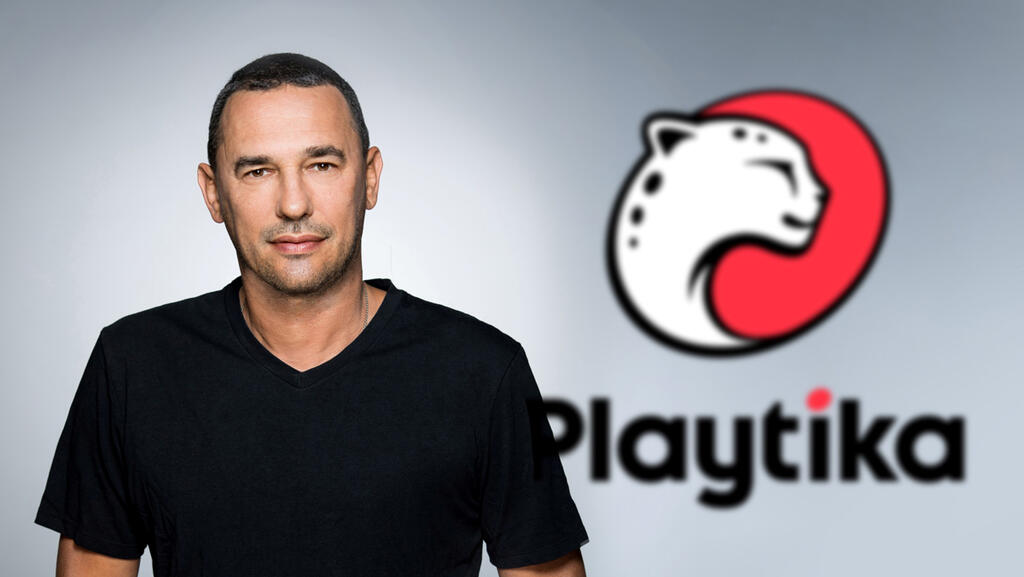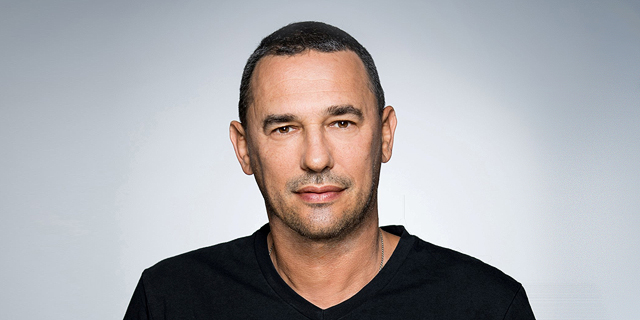
“We aim to be the largest gaming company in the world,” says Playtika CEO
Robert Antokol, co-founder and CEO of Israeli-based mobile gaming company Playtika, which was listed on the NYSE on Friday, has big plans for his company
Tzally Greenberg | 11:58, 17.01.21
Robert Antokol, the co-founder and CEO of Israeli-based mobile gaming company Playtika Ltd., founded the company in 2010 along with Uri Shahak. The pair started working in offices above a laundromat and employed only 10 people. On Friday, Playtika became the largest Israeli gaming company to be listed on the Nasdaq with a valuation of $11.7 billion, employing 3,700 people, spread out over 19 different locations around the world.
“We aim for Playtika to be the largest gaming company in the world,” Antokol said in an interview with Calcalist. “Now, after ten years of work, we feel that we want to show the world who Playtika is.”
Antokol, who until recently preferred to maintain discretion in regard to the company’s activity, realized that Playtika had reached a point of no return, which required it to be listed on the stock exchange to enable it to grow. He also realized that it would cost him exposure that he was not accustomed to. The push to go public was driven by Playtika’s controlling shareholder, Chinese consortium Alpha Frontier, which sold $1.3 billion of the company’s shares as part of Playtika’s IPO. Alpha Frontier acquired the Israeli company in the summer of 2016
for $4.4 billion.
“Prior to the IPO we relied on the cash flow that we generated,” Antokol said, “but we have the ability to be a much bigger player, and that’s why we needed to become a publicly-traded company. The company’s preference to remain private has a lot to do with my personal character. I value my privacy and prefer to focus on doing and not on public relations. But I realize that the public aspect is now part of the company’s character too. I’m glad this process is behind us, and even more glad about the reactions we’ve received from our American investors,” he said.
Immigrated to Israel at the age of six
Antokol isn’t exactly the archetype of the average Israeli techie. He immigrated to the country at the age of six from Latvia, and settled in northern Israel, in Kiryat Bialik, where he lived until the age of 26. Despite his background, it seems as if the 2.6% stake he holds in Playtika which is valued at a $306 million upon listing doesn’t excite him much, since he’s already completed three exits with the company.
“I really don’t think about it, it’s not like I was in a different place yesterday,” Antokol said surprisingly. “But for our over 3,000 employees, third of whom are Israeli, who now received stock options, it’s amazing. It’s wonderful for them and for the Israeli economy. In that context, it’s important to mention that 80% of the people who started working with me back then, are still with us now, even after the company has completed three exits, and despite the fact that the entire world is trying to hire them. They stayed on to fight alongside me.”
“We were one of the first companies that went back to working out of our offices (after the lockdown restrictions were lifted), since being together is a part of the company’s DNA, and we also have a responsibility for the economic life around us,” he said. “Tech companies sometimes live in a bubble, but for us it was always clear that we remain a part of our surrounding environment and the community. That’s why Playtika has remained in Israel, with a blue-and-white leadership, even though its shareholders have changed.”
“The easing out of the pandemic will have a less dramatic effect on our operations”
Although the coronavirus (Covid-19) outbreak took away some of that feeling of togetherness, it contributed to a 28.5% increase in company revenues. In the world of gaming, many fear that demand for the industry's products will decline as the world eases out of the global health crisis.
However, Antokol isn’t too disturbed by this and said, “it’s difficult to predict the future, and it’s important to remember that Playtika grew consistently and was profitable prior to the pandemic. Despite the focus on the company’s growth during the pandemic, this isn’t an exceptional period for the company’s activities. It’s not like we’re suddenly seeing a mountain of revenue. We always had positive cash flow, and fluctuations towards the right or the left, won’t have a dramatic effect on our operations.”
Antokol isn’t too bothered by the company’s $2.4 billion in debts either. “The size of our debt isn’t dramatic in comparison to the company’s size, and we intend to recycle it. The technology we’ve built over the past 10 years is what will take us forward, and it’s what has grown and will continue to grow our acquisitions. Our experience will allow us to grow the company within three months, not because of traffic (directing user traffic to Playtika’s games), but because of the technology we’ve developed. It’s like going from driving a Toyota to driving a Mercedes in three months.”
As for Mercedes, Antokol and the rest of his senior management team use a private plane for meetings overseas. “I visit every one of our 19 offices around the world at least twice a year to relay important messages to employees directly as CEO,” he said. “Despite that, I still take my child to school on a scooter.”
